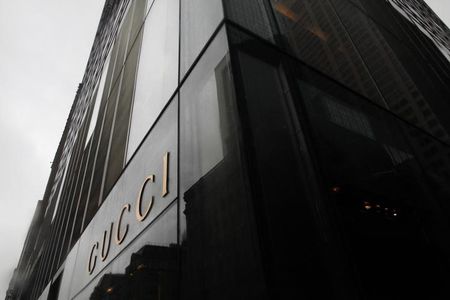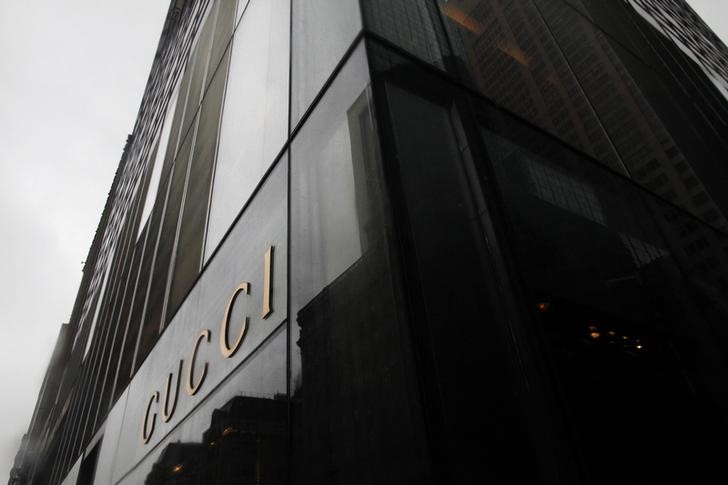By Astrid Wendlandt
PARIS (Reuters) - Sales trends at Italian fashion brand Gucci showed signs of turning the corner in the third quarter, particularly in major markets such as western Europe and China, despite remaining negative, owner Kering said on Thursday.
Kering said demand in China had started to return since the second quarter and added that appetite for the brand from local consumers in western Europe was also getting stronger.
"It is a gradual improvement ... I think that globally for Gucci we can say that we have reached an inflexion point at the end of the second quarter," Kering Finance Director Jean-Marc Duplaix told journalists on a conference call.
Gucci's like-for-like sales fell 1.9 percent in the three months to Sept. 30, compared with a drop of 2.4 percent in the previous quarter. Many analysts had expected Gucci's sales to drop no more than 1 percent or remain flat.
Duplaix steered clear of giving any guidance on the timing of a return to sales growth for Gucci, which accounts for the bulk of Kering's operating profit and stock market valuation.
He also said the riots in Hong Kong earlier this month had hit sales and trading had deteriorated in Singapore as well.
Softer demand from China due to the country's weaker economy and its crackdown on conspicuous spending has affected big luxury groups such as Kering and LVMH, but it has hit hardest specialist watch makers such as Richemeont and Swatch Group.
Kering said sales from its so-called "soft luxury" products, comprising leather goods and apparel, were up 5 percent, while revenue from "hard luxury," or watches and jewellery, was down 8 percent.
Duplaix estimated Chinese clients at home and abroad represented around a third of total Gucci product buyers.
NEGATIVE TREND
Kering also said Gucci purchases from Japanese and Russians in western Europe had declined since the beginning of the year and this negative trend had continued in the third quarter.
Gucci's sales from its directly operated shops fell 5 percent in the Asia Pacific region and were down 1 percent in western Europe, but were up 8 percent in North America and up 4 percent in Japan in the third quarter.
Kering had indicated in July it expected Gucci's wholesale revenue to stabilise in the second half and they fell 8 percent in the third quarter against a drop of 12 percent in the first half.
The group said the decline was partly due to having narrowed its range of small leather goods and luggage products and forecast wholesale trends would continue to improve in the fourth quarter.
Kering said like-for-like sales from Bottega Veneta, its second-biggest brand after Gucci, rose 10.8 percent in the third quarter while revenue from Saint Laurent was up 27.5 percent.
Another bright note was Kering's Puma sportswear brand, which enjoyed its best quarter in several years with comparable sales growth of 6.2 percent.
Duplaix said the brand was reaping the fruits of its turnaround and hard work from its new management and creative teams. It also benefited from a rebound in the euro zone, particularly in France and Germany, its two biggest markets.
"We consider that there are very encouraging signs and order books are filling up nicely," Duplaix said about Puma.

Overall, Kering's total like-for-like third-quarter sales rose 4.4 percent to 2.61 billion euros (2.06 billion pounds), broadly in line with expectations.
(Editing by James Regan and David Holmes)
